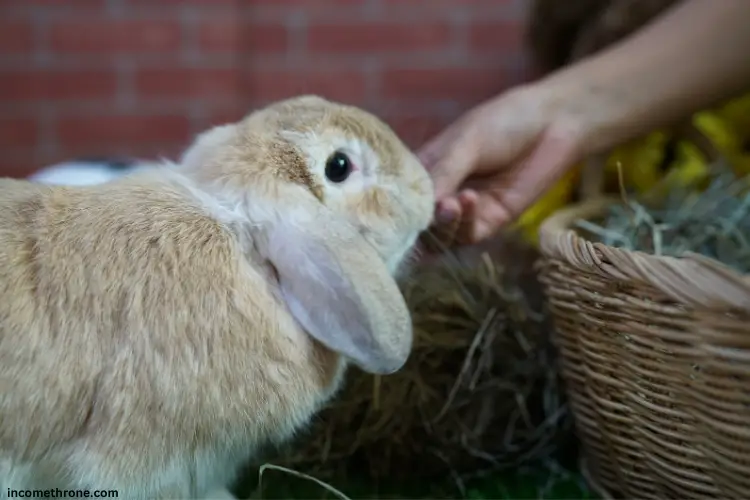Holland Lop bunnies, with their endearing floppy ears and playful personalities, have captured the hearts of pet owners worldwide.
As a prospective or current pet owner, understanding the lifespan and care requirements of these adorable creatures is paramount.
In this article we discuss and explore about the lifespan of Holland Lop bunnies as a pet, factors influencing their longevity, and tips for ensuring they live a healthy and happy life.
Understanding the Lifespan of Holland Lop Bunnies
Average Lifespan
Holland Lop bunnies typically live between 7 to 10 years when kept as pets. This lifespan can vary based on several factors such as genetics, diet, environment, and overall care. With optimal care, some Holland Lops can even surpass the 10-year mark, providing years of companionship and joy.
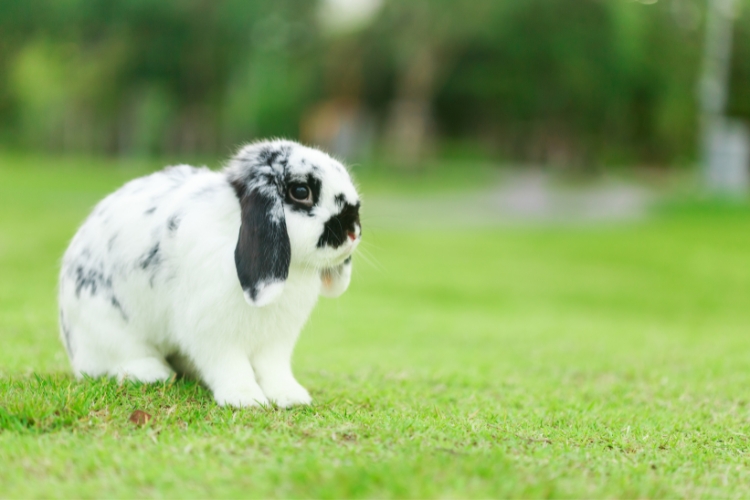
Factors Influencing Longevity
- Genetics:
- Breeding Quality: The genetic makeup of a Holland Lop plays a crucial role in its lifespan. Reputable breeders who prioritize health and temperament over appearance tend to produce healthier bunnies.
- Inherited Conditions: Some hereditary conditions can affect longevity. Ensuring that the bunny comes from a line free of genetic health issues can contribute to a longer life.
- Diet:
- Balanced Nutrition: A diet rich in hay, fresh vegetables, and a controlled amount of pellets is essential. Hay should make up the majority of their diet, aiding in digestion and dental health.
- Hydration: Constant access to fresh, clean water is vital for maintaining health.
- Environment:
- Living Space: Providing a spacious and clean living environment reduces stress and the risk of disease. Holland Lops thrive in environments where they have room to hop and explore.
- Temperature Control: Extreme temperatures can be harmful. Holland Lops prefer a moderate climate and should be kept indoors or in a controlled outdoor environment.
- Healthcare:
- Regular Vet Check-ups: Routine veterinary care, including vaccinations and health checks, can catch potential issues early.
- Spaying/Neutering: Spaying or neutering not only prevents unwanted litters but also reduces the risk of certain cancers and behavioral issues.
- Exercise and Enrichment:
- Physical Activity: Regular exercise is crucial for maintaining a healthy weight and preventing obesity-related issues.
- Mental Stimulation: Enrichment activities such as toys, tunnels, and interaction with their owners help keep Holland Lops mentally stimulated and happy.
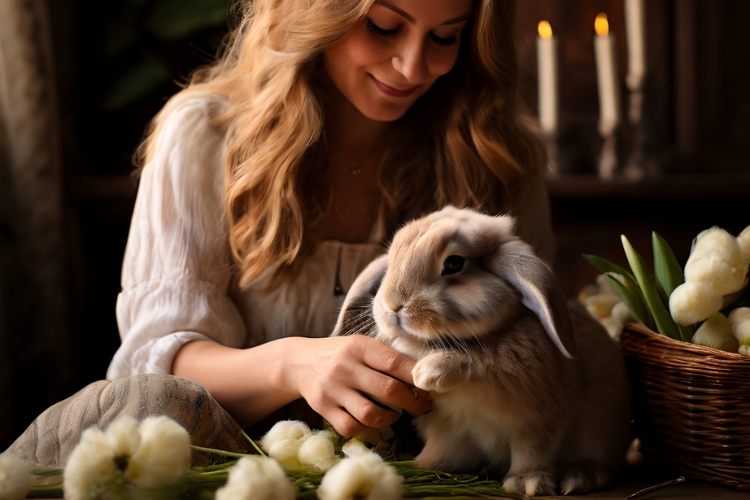
Common Health Issues in Holland Lop Bunnies
Understanding common health issues can help in early detection and treatment, thereby potentially extending the lifespan of your Holland Lop bunny.
Dental Problems
- Overgrown Teeth: Holland Lops are prone to dental issues due to their continuously growing teeth. Providing a diet high in fibrous hay helps wear down teeth naturally.
- Malocclusion: This condition, where the teeth do not align properly, can cause difficulty eating and pain. Regular dental check-ups are essential.
Gastrointestinal Stasis
- Symptoms: Reduced appetite, small or no fecal pellets, lethargy.
- Prevention: A high-fiber diet, regular exercise, and avoiding stress can help prevent this life-threatening condition.
Respiratory Infections
- Symptoms: Sneezing, nasal discharge, difficulty breathing.
- Prevention: Keeping the living environment clean and free from drafts, as well as avoiding exposure to sick animals, can reduce the risk.
Parasites
- Common Parasites: Mites, fleas, and intestinal worms.
- Prevention: Regular grooming, maintaining a clean living space, and routine vet check-ups can help control and prevent infestations.
Uterine Cancer
- Risk: Unspayed female Holland Lops are at a higher risk of developing uterine cancer.
- Prevention: Spaying female bunnies significantly reduces the risk of this and other reproductive cancers.
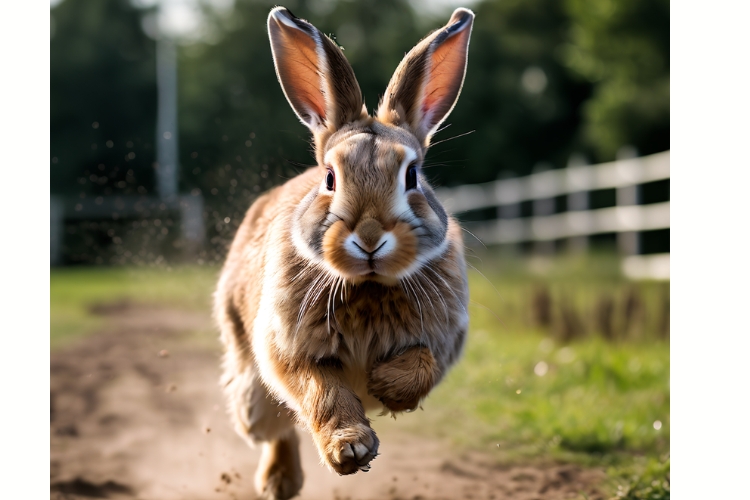
Creating an Optimal Living Environment
A well-maintained living environment plays a crucial role in ensuring the longevity and well-being of your Holland Lop bunny.
Housing
- Indoor vs. Outdoor: While Holland Lops can live both indoors and outdoors, indoor housing is often safer and more controlled. It allows for better temperature regulation and protection from predators.
- Cage Size: The cage should be spacious enough for your bunny to move around comfortably. A minimum of 4 feet by 2 feet is recommended, but larger is always better.
- Bedding: Use safe, absorbent bedding such as paper-based products or aspen shavings. Avoid pine and cedar shavings as they can be harmful to your bunny’s respiratory health.
Enrichment
- Toys: Provide a variety of toys such as chew toys, tunnels, and puzzle feeders to keep your bunny entertained.
- Interaction: Regular interaction with their human companions is important. Holland Lops are social creatures and thrive on attention and playtime.
Cleanliness
- Routine Cleaning: Clean the cage regularly, removing soiled bedding and uneaten food. A weekly deep clean with safe disinfectants is recommended.
- Litter Training: Holland Lops can be litter trained, which makes maintaining a clean environment easier. Use a rabbit-safe litter in a designated area of the cage.
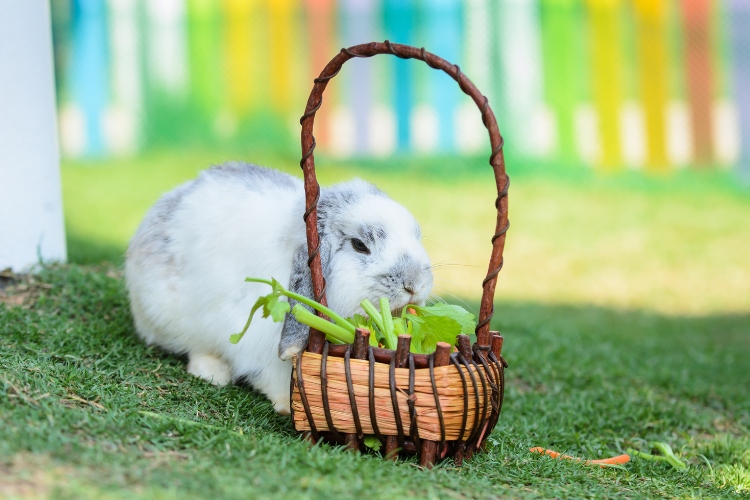
Diet and Nutrition
Proper diet and nutrition are fundamental to the health and longevity of your Holland Lop bunny.
Hay
- Primary Diet Component: Hay should make up the majority of your bunny’s diet. Timothy hay, orchard grass, and meadow hay are excellent choices.
- Benefits: Hay promotes healthy digestion and helps wear down their continuously growing teeth.
Fresh Vegetables
- Variety: Offer a variety of fresh vegetables daily. Leafy greens such as romaine lettuce, kale, and parsley are great choices.
- Portion Control: Introduce new vegetables gradually and in moderation to avoid digestive upset.
Pellets
- Quality: Choose high-quality pellets specifically formulated for rabbits. Avoid those with added sugars and artificial ingredients.
- Quantity: Pellets should be given in moderation, as overfeeding can lead to obesity.
Treats
- Occasional Treats: Fruits and commercial treats should be given sparingly. Apples, bananas, and berries can be offered occasionally as treats.
- Avoid Harmful Foods: Some foods are toxic to rabbits, including chocolate, onions, garlic, and avocado. Always research before introducing new foods.
Water
- Fresh Supply: Ensure your bunny has access to fresh, clean water at all times. Change the water daily and clean the water bottle or bowl regularly.
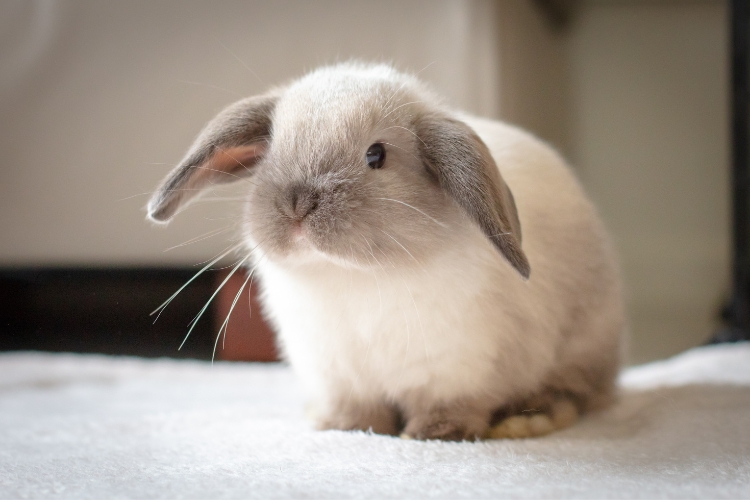
Regular Health Check-Ups
Routine veterinary check-ups are crucial for early detection and prevention of health issues.
Selecting a Rabbit-Savvy Vet
- Experience: Choose a veterinarian experienced in rabbit care. Not all vets are familiar with the unique needs of rabbits.
- Regular Visits: Schedule annual check-ups, or more frequently if your bunny is older or has health issues.
Common Procedures
- Vaccinations: Depending on your location, certain vaccinations may be recommended to protect against diseases such as myxomatosis and rabbit hemorrhagic disease.
- Dental Checks: Regular dental examinations can help prevent and address dental issues early.
- Spaying/Neutering: Discuss the benefits of spaying or neutering with your vet. This procedure can prevent certain health issues and behavioral problems.
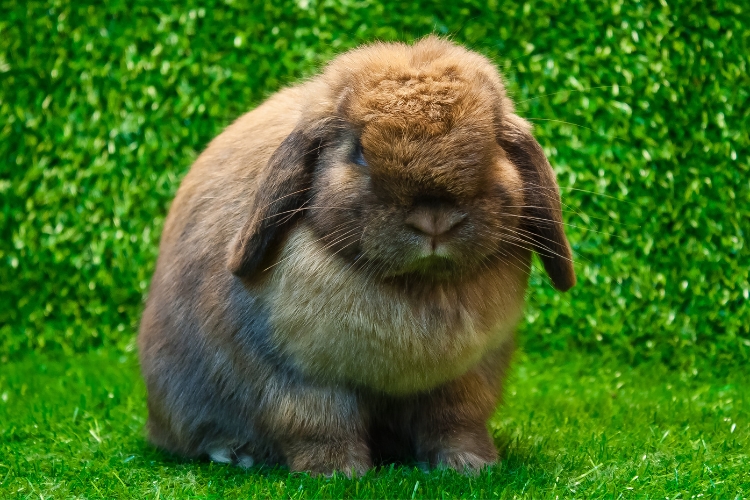
Mental and Physical Enrichment
Keeping your Holland Lop bunny physically active and mentally stimulated is essential for their overall well-being.
Exercise
- Daily Exercise: Allow your bunny to exercise outside of their cage daily. Supervised playtime in a bunny-proofed area is ideal.
- Safe Space: Ensure the exercise area is safe from potential hazards such as electrical cords, toxic plants, and small objects that could be ingested.
Social Interaction
- Bonding: Spend time bonding with your bunny through gentle petting, grooming, and play. Holland Lops are social animals and thrive on interaction.
- Companionship: Consider adopting a second bunny for companionship, especially if you are away from home frequently. Ensure proper introductions and bonding to avoid conflicts.
Mental Stimulation
- Toys and Puzzles: Provide a variety of toys and puzzle feeders to keep your bunny mentally engaged.
- Rotate Toys: Rotate toys regularly to keep things interesting and prevent boredom.
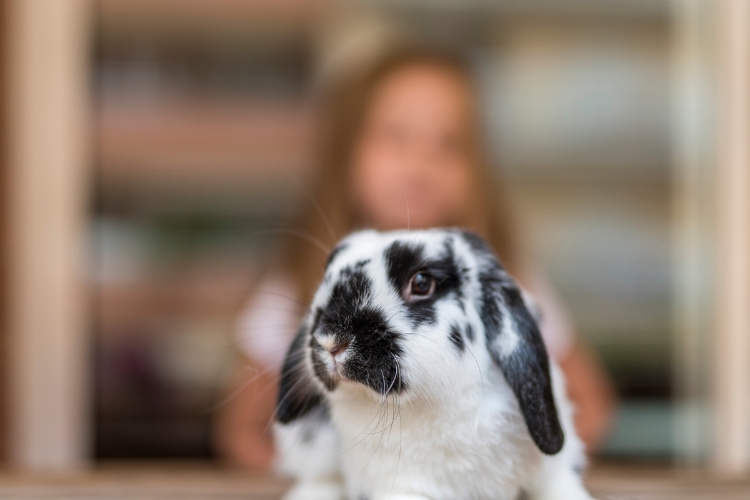
The Importance of Spaying and Neutering
Spaying and neutering offer numerous health and behavioral benefits for your Holland Lop bunny.
Health Benefits
- Cancer Prevention: Spaying female bunnies reduces the risk of uterine, ovarian, and mammary cancers. Neutering males can prevent testicular cancer.
- Infection Prevention: Spaying and neutering can prevent certain infections and reproductive disorders.
Behavioral Benefits
- Reduced Aggression: Neutering males can reduce territorial and aggressive behaviors.
- Improved Litter Training: Spayed and neutered bunnies are often easier to litter train and have fewer marking behaviors.
Conclusion
Holland Lop bunnies, with proper care, can live a happy and healthy life spanning 7 to 10 years, and sometimes even longer. By understanding their unique needs and providing a balanced diet, a safe and enriching environment, regular veterinary care, and plenty of love and attention, you can ensure your furry friend thrives.
These adorable bunnies offer endless joy and companionship, making the effort to care for them more than worthwhile. Whether you are a new or experienced bunny owner, staying informed and proactive about your Holland Lop’s needs will help foster a fulfilling and lasting bond.
Additional Resources:
1. WHEN IS HOLLAND LOP FULL GROWN?
2. WHEN DO HOLLAND LOP EARS DROP? A COMPREHENSIVE GUIDE
3. WHAT DO HOLLAND LOP RABBITS EAT? A COMPREHENSIVE GUIDE TO NUTRITION
4. HOW MUCH DO HOLLAND LOPS COST? EXPLORING THE FACTORS THAT INFLUENCE PRICES

